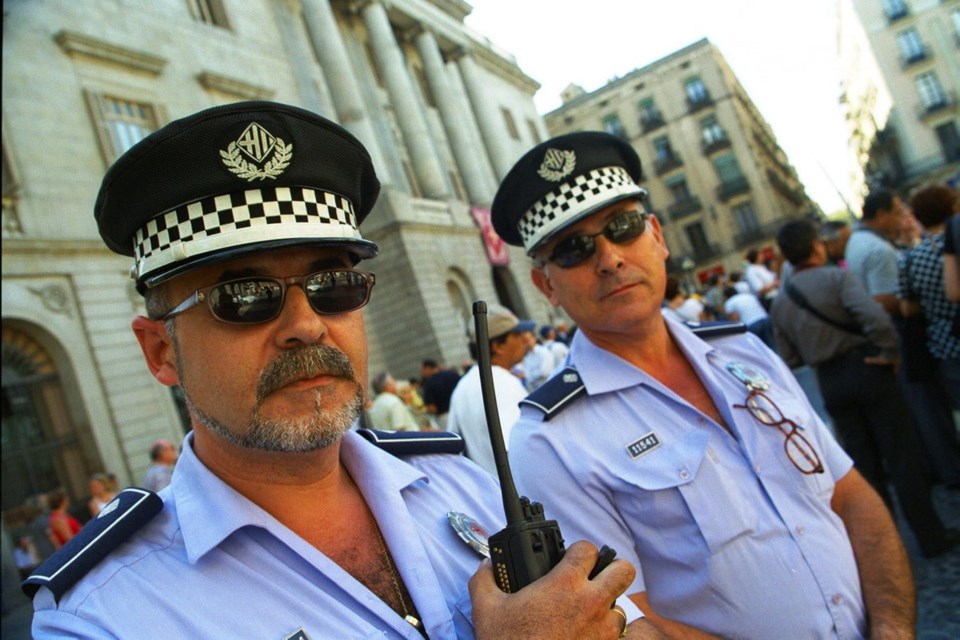Europe is a surprisingly creative place when it comes to travel scams. Many of the most successful gambits require a naively trusting tourist, but seasoned travellers can be taken in, too. We should all be wary of the numerous subtle scams — a cabbie pads your fare, a hotel business-centre computer records your password, or a waiter offers a special with a “special” increased price.
But if you’re cautious and not overly trusting, you should have no problem. Here are some of the latest travel scams I’ve discovered on my travels, and how to skirt them.
Money-wiring requests
You’re searching online for an apartment to rent in Paris and contact the owner, Pierre, through Airbnb. Suddenly, you get a private email from Pierre saying he can give you a better deal on the side — avoiding the website commission.
The price is right and the location is fantastic, but Pierre wants you to wire the money directly to his bank account. “I’ve got others interested, too, so you’d better do it quick,” he writes.
But once you wire the money, Pierre disappears, along with the listing, and there’s no way to get your money back.
Best defence: When booking accommodations, never wire money directly to a foreign bank account. Stick with a reputable, secure reservation website and use a credit card so you can dispute any fraudulent transactions.
ATM scams
In the heart of Barcelona, you are about to use an ATM when another tourist stands on the sidewalk with a selfie stick and starts taking pictures.
You don’t think much about it as you withdraw your money and head into the Metro. Five minutes later, after being jostled in a crowded subway car, you find that your wallet is missing.
When you frantically call your bank, you find out that someone with your PIN has already withdrawn hundreds of euros from a different ATM. It turns out the “tourist” with the selfie stick was actually taking a video as you entered your PIN on the ATM keypad. His accomplice then targeted you in the subway.
Best defence: Check your surroundings before withdrawing cash from an ATM. If there is someone suspicious nearby, find a different ATM. And always cover the keypad when you enter your PIN.
Fake tickets
Fresh off a long flight into Schiphol Airport and eager to get to your hotel in central Amsterdam, you approach the train-ticket machine with your credit card in hand.
But a friendly-looking passerby offers to sell you at a discount a legit-looking ticket, saying he accidentally purchased two. Later, when you feed the ticket into a turnstile, it doesn’t work — the ticket was either a fake, or already had its bar code scanned.
Best defence: Never hand over cash (or a card) to someone who’s not behind a counter.
“Dynamic” currency conversion
On your last day in London, you find a Union Jack coaster set you know your sister will love. You push your credit card into the reader, and it defaults to running the transaction in “USD” unless you select “GBP.”
The shopkeeper explains that the U.S. dollar option is a service that lets you “lock in” your conversion rate. Later, when you’re in Edinburgh, an ATM offers two options: “You can be charged in dollars: Press YES for dollars, NO for British pounds.”
You think “dollars” is the logical choice and press YES. But when you check your bank statements, you see a “fee” for converting transactions to dollars and a poor exchange rate. You’ve been a victim of what banks call “dynamic currency conversion,” which may be legal, but is a rip-off.
Best defence: When a merchant or a bank asks if you want to be charged in dollars, always choose the local currency. Cancel the transaction if they say you must pay in dollars.
Fake officials
In Prague, two uniformed men stop you on the street, flash “Tourist Police” badges and ask to check your wallet for counterfeit bills. After looking through your wallet, they say everything is fine and leave. You don’t even notice some bills are missing until later.
Best defence: Never hand over your wallet to anyone. If the “police” insist, tell them you’ll do it at a police station, not on the street.
There probably aren’t more thieves in Europe than in the US. We travellers just notice them more because they target us. But remember, nearly all crimes suffered by tourists are nonviolent and avoidable. If you exercise adequate discretion, stay aware of your belongings and avoid putting yourself into risky situations, your travels should be about as dangerous as hometown grocery shopping. Don’t travel fearfully — travel smartly.
Rick Steves () writes European travel guidebooks and hosts travel shows on public television and public radio. Email him at [email protected] and follow his blog on Facebook.


